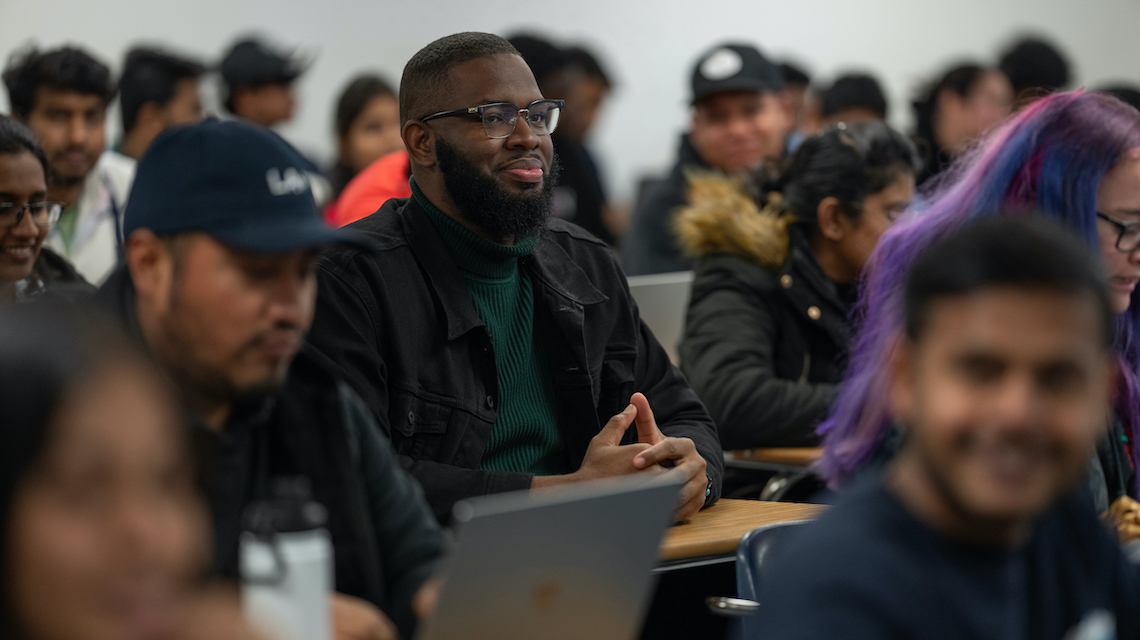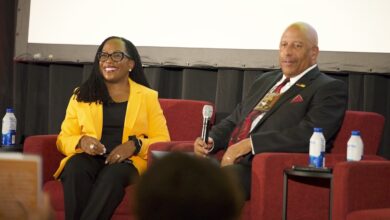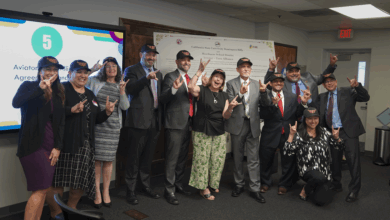
Source: Ed Source
Representation matters, especially in the classroom. Students can do better when they are instructed by a person who looks like them. As California is challenged by fiscal uncertainties, school districts are bracing themselves to establish their own budget priorities. Now more than ever, it is time for school districts to protect and realize their promises of establishing and maintaining teacher diversity that is reflective of the students and communities they serve.
Two years ago, the Los Angeles Unified School Board demonstrated its commitment to Black students, educators and families by passing a resolution on Black student excellence through educator diversity, preparation and retention. The resolution demonstrates the district’s commitment to foster a more inclusive and equitable educational landscape.
But resolutions are only as good as their implementation. Los Angeles Unified has taken some initial steps that can be built upon and expanded to serve as a model for other districts.
In addition to prioritizing workforce diversity in the district’s Ready for the World strategic plan, one of the district’s key initiatives has been to create affinity spaces for Black male and female educators. These spaces provide a supportive environment for Black educators to connect, share experiences, and receive mentorship and support throughout their careers. This effort is a crucial step toward increasing the representation of Black educators in the teaching profession and fostering inclusivity.
Another significant initiative has been the district’s targeted recruitment efforts at historically Black colleges and universities (HBCUs) to diversify the teaching pipeline. By partnering with institutions like Cal State Dominguez Hills, the district has secured funding for programs that support Black students pursuing careers in education. This effort is a vital step toward addressing the longstanding inequities faced by Black students and educators.
Additionally, the district has established mentorship and support programs to incentivize students to pursue careers in education and facilitate a seamless transition into the profession. The Educators of Tomorrow program, for example, offers financial incentives to students pursuing teaching credentials and provides resources and support to facilitate their career transitions. Moreover, the district’s collaboration with nonprofits to expand the Black educator pipeline and the emphasis on mentorship opportunities within the district demonstrate a concerted effort to nurture talent and foster growth.
These efforts are not limited to Los Angeles Unified. In the Bay Area, Emery Unified School District is seeing progress through targeted approaches to improving outcomes for Black students by shifting to equity-based grading, paying teachers to tutor outside of school hours and continuing its focus on recruiting Black educators, among other strategic approaches.
And recognizing the need to invest more in school leadership, in July 2023, Gov. Gavin Newsom and the California State Legislature approved the Diverse Education Leaders Pipeline Initiative, a $10 million dollar grant program, to address the need for a more diverse and culturally responsive education leadership workforce.
Administered by the California Commission on Teaching Credentialing, this initiative seeks to credential and train over 300 new administrators across the state over the next four years. To recruit, support and retain educators, particularly those of color, we must have a pipeline of culturally responsive school leaders.
These local and state initiatives must be celebrated, supported and replicated. But while we celebrate Los Angeles Unified’s efforts to date, we know more transparency and engagement with community stakeholders is vital for realizing the promise of the district’s 2021 resolution. We also know others cannot follow what they can’t see. Los Angeles Unified and districts across California must share their data and learning so that others can join in taking action too.
Fiscal uncertainties can undermine progress and change if our leaders don’t uphold their commitments and maintain their courage. Districts have shown progress toward ensuring our schools reflect the students and communities they serve. Our state and district leaders can’t stop investing and prioritizing teacher diversity now.
We can’t build a better tomorrow for California’s students and families of color without keeping and making the necessary investments of today.
Laura McGowan-Robinson, Ed.D., is CEO of the Diversity in Leadership Institute, a nonprofit working to build a movement of racially diverse and culturally competent public education leaders.








